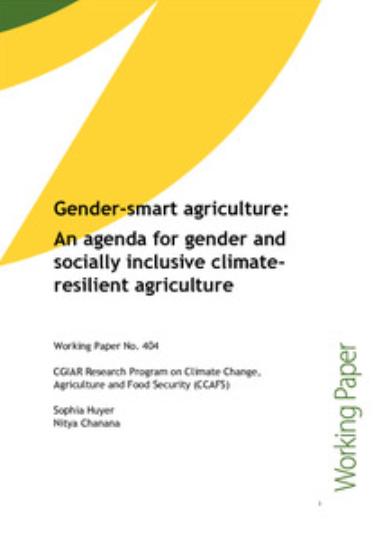Gender-smart agriculture: An agenda for gender and socially inclusive climate-resilient agriculture

The working paper reviews the evolution of the CCAFS gender and social inclusion agenda towards gender equality and empowerment in relation to climate resilient agriculture. Climate change research typically shows glaring gaps in understanding the different adaptive strategies and capacities of men and women, and the technologies, practices, and enabling environments that will empower women. CCAFS approach to gender, therefore, has been to understand the gender gap in agriculture under climate change (CCAFS Phase I) while also researching climate-smart solutions to promote gender equality and women’s empowerment (CCAFS Phase II). A decade of gender research in CCAFS has led to the generation of a ‘Gender-Smart Agriculture’ approach. Gender research in CCAFS Phase I attempted to explore men’s and women’s adaptation options and strategies (individual, household, or collective) and the differences in their capacity to adapt. Data collected through household and intra-household surveys across CCAFS Climate Smart Village sites, highlighted influential findings on gender and CSA research by CCAFS and partners to date.